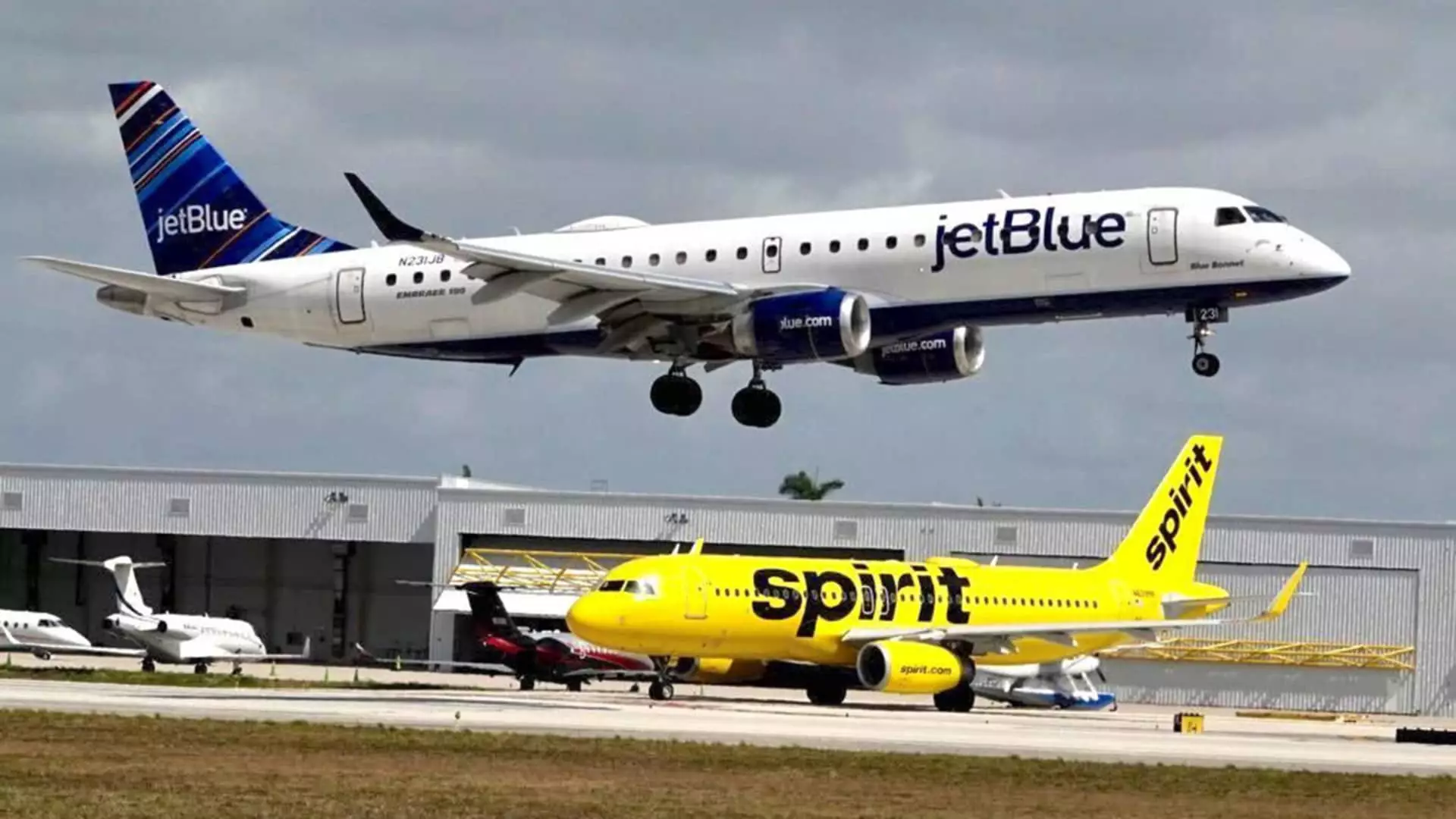Spirit Airlines finds itself on unstable ground following the recent federal court ruling that rejected JetBlue Airways’ proposed $3.8 billion takeover of the budget carrier. This decision has significant implications for Spirit’s future, with industry experts suggesting that the airline may be compelled to further reduce its already low fares. Additionally, some Wall Street analysts go as far as to argue that Spirit could face the need to restructure or even liquidate. These concerns have already begun to manifest, as Spirit’s shares plummeted by 47% right after the ruling was issued, and another 23% the following day, hitting a record low of $5.74 per share.
Prior to the court ruling, Spirit was already grappling with multiple challenges. These include ongoing groundings of some Airbus narrow-body jets due to Pratt & Whitney engine issues, as well as weaker-than-anticipated demand resulting from the COVID-19 pandemic and rising costs. In light of these circumstances, the airline may explore alternative buyers, but industry experts believe that a Chapter 11 bankruptcy filing followed by liquidation is a more probable scenario.
The potential bankruptcy and subsequent liquidation of Spirit Airlines would necessitate a further reduction in fares. Known for its low base fares and additional fees for various services like seat selection and cabin baggage, Spirit may resort to shockingly low prices on its major routes as a means to generate immediate cash inflow during difficult times. This development could temporarily benefit consumers seeking discounted fares but would ultimately put further strain on an airline that relies on significant cash flow to operate.
Not only does Spirit contend with the aftermath of the blocked merger, but it also confronts a range of other difficulties alongside its industry peers. The combination of rising employee salaries and operating costs, coupled with an increase in domestic flight capacity, has led to a reduction in fares across the industry. While this may be advantageous for customers in the short term, airlines are struggling to generate sufficient cash flow to sustain their operations.
Samuel Engel, a lecturer at Boston University’s Questrom School of Business and a senior vice president at consulting firm ICF, points out that the current dynamics of softening demand and rising costs are pressuring airlines from both angles. Engel suggests that airlines will inevitably begin to cut fares to maintain profitability. Consequently, these circumstances are expected to undermine airline revenues and disrupt their ability to compete effectively.
Judge William Young’s decision to block JetBlue’s acquisition of Spirit primarily revolves around concerns of eliminating a budget airline renowned for its low fares and unique branding. JetBlue’s proposed plan involved rebranding Spirit’s planes and incorporating them into its own fleet, offering passengers more comfort and space. JetBlue, eager to compete with major carriers like American, Delta, United, and Southwest, believed that incorporating Spirit’s pilots, routes, and fleet would facilitate growth and improve their competitive position.
Critics of the merger blockade argue that it consolidates power within the already dominant “big four” airlines, all of which were formed through various mergers authorized by regulators. Engel contends that preventing mergers between second-tier airlines only strengthens the dominance of the larger carriers at the expense of competition and consumer choice.
JetBlue has previously demonstrated its impact on larger airlines by introducing innovations such as its lower-priced Mint cabin over a decade ago and offering seat-back entertainment before many of its competitors. Despite their disagreement with the court’s ruling, both JetBlue and Spirit are evaluating their options for the future. However, the incoming CEO of JetBlue, Joanna Geraghty, will face the arduous task of returning the airline to profitability and charting a growth path, given its operation in congested airspaces and airports.
Engel speculates that had JetBlue not intervened in the merger process, a potential merger between Frontier and Spirit might have already materialized. Such a combination could have potentially had a higher chance of approval. However, with JetBlue’s entrance and an increasingly sweetened all-cash offer of $3.8 billion, Spirit shareholders ultimately rejected the Frontier cash-and-stock deal in favor of JetBlue’s acquisition.
Spirit Airlines faces an uncertain future following the blocked merger and the numerous challenges it currently confronts. The potential need for bankruptcy and liquidation, coupled with the possibility of even lower fares, poses significant risks to the airline’s survival. As the industry landscape continues to evolve, Spirit must carefully navigate these turbulent times to secure its place in an increasingly competitive and challenging aviation industry.


Leave a Reply